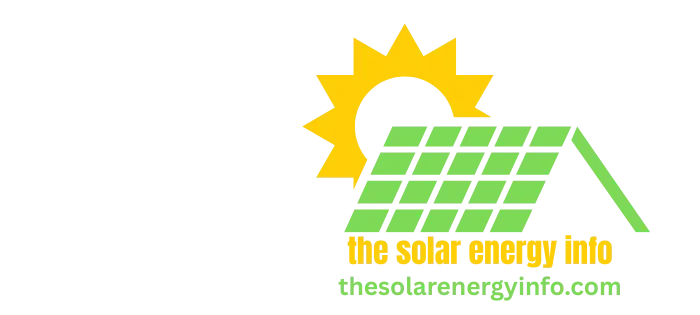Complete Solar Panel Maintenance Guide for 2025 – Clean, Repair, and Care Tips
Solar panels need regular maintenance to keep working well. In 2025, this is more important than ever. Proper care helps boost energy production and prevent expensive repairs. Neglecting your panels can reduce their efficiency by up to 25%.
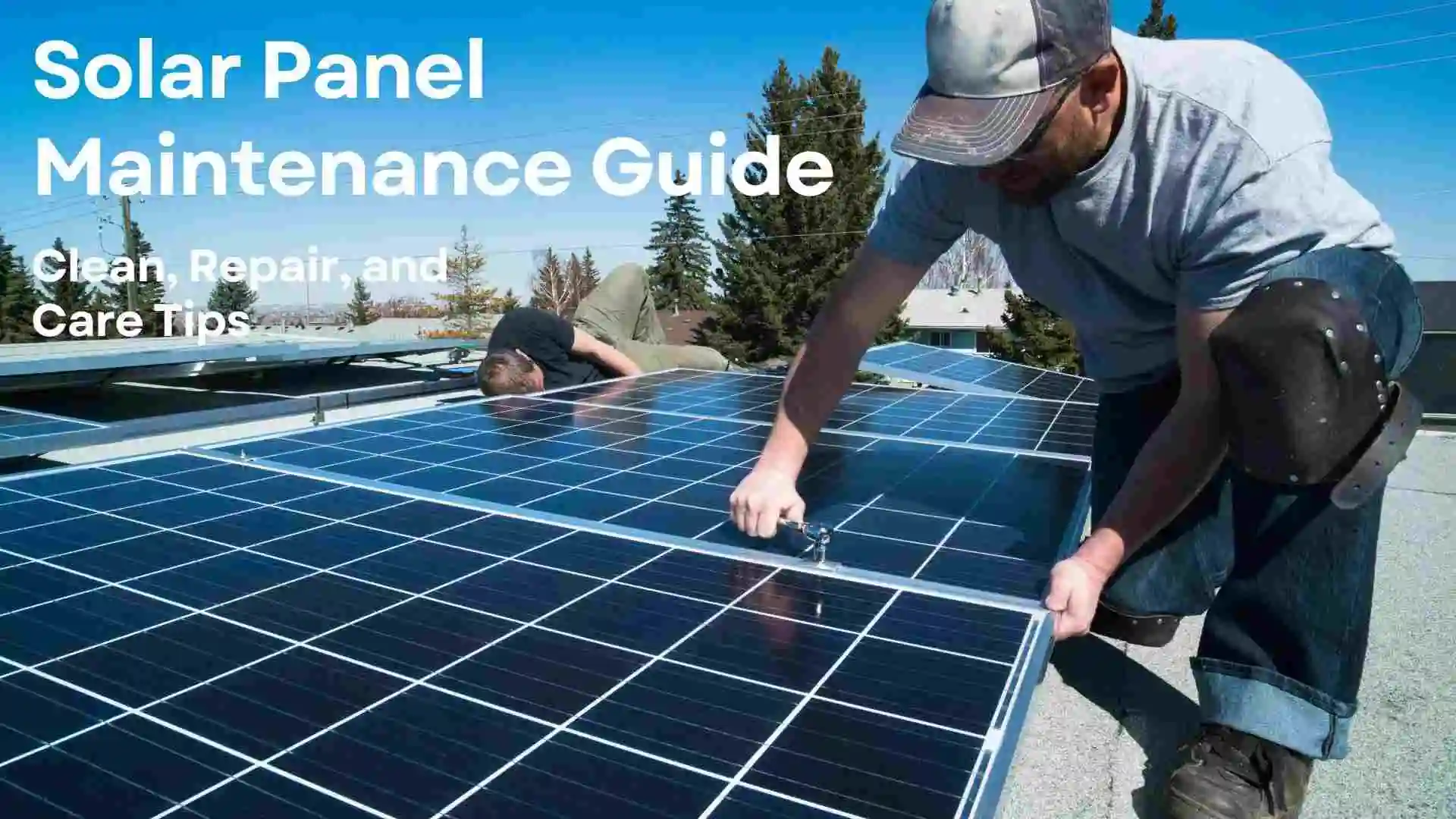
This guide will show you how to clean, repair, and maintain your solar panels. We’ll cover what parts to check, whether to clean them yourself or hire a pro, and how to make your system last longer. Follow these simple steps to keep your solar panels efficient and save on energy costs.
If you want to know complete details about solar system then please visit Solar Energy.
Why Regular Solar Panel Maintenance is Essential for Optimal Performance
Solar panels need regular care to work well. Dust and dirt can block sunlight and reduce energy production. Without maintenance, these issues can cause a drop in efficiency by up to 25%. In 2025, keeping your panels clean and in good condition is more important than ever.
Regular checks help find small problems before they get worse. Cleaning the panels and inspecting the system can improve performance. Proper maintenance also helps your solar panels last longer and saves you money on repairs.
How Solar Panel Maintenance Increases Energy Efficiency
Regular maintenance keeps your solar panels working at their best. Clean panels can absorb more sunlight and convert it into energy more efficiently. When dirt or debris build up, they block sunlight, which reduces energy output. By cleaning your panels and checking for damage, you can avoid this problem and keep your system running smoothly.
Inspecting key components like inverters and wiring also helps. These parts must be in good shape for your system to operate at peak performance. Proper maintenance ensures your solar panels continue to generate the most energy possible, saving you money on your electricity bills.
| Maintenance Task | How It Increases Energy Efficiency |
|---|---|
| Cleaning Panels | Clean panels absorb more sunlight and generate more power. |
| Inspecting Inverter | A good inverter ensures energy flows correctly from panels to your home. |
| Checking Wiring | Well-maintained wiring prevents energy loss and keeps the system efficient. |
| Removing Obstructions | Removing dirt or shadows helps your panels get maximum sunlight. |
| Professional Inspections | Experts make sure everything is working well to keep energy efficiency high. |
The Ultimate Guide to Cleaning Solar Panels – Step-by-Step Process
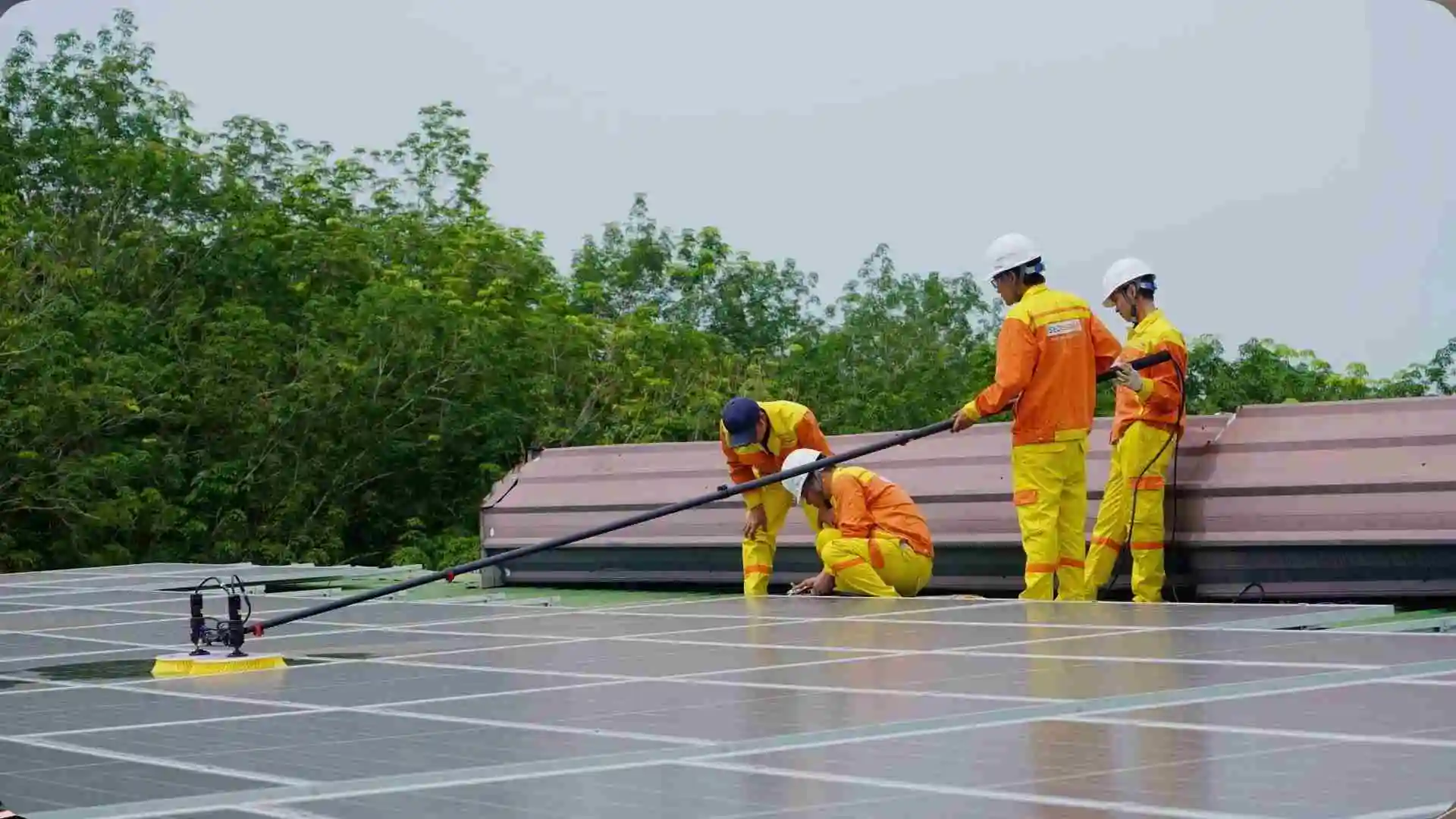
How Often Should You Clean Your Solar Panels?
You should clean your solar panels every 6 to 12 months, depending on where you live. If you live in a dusty area or near trees, you might need to clean them more often. Regularly checking your panels can help you decide if cleaning is needed sooner. After a rainstorm, you may also want to inspect them, as rain can help remove some dirt and debris.
Cleaning your solar panels too often isn’t necessary, as they are designed to withstand weather conditions. However, keeping an eye on their performance and appearance will ensure they continue working efficiently.
Best Tools and Products for Solar Panel Cleaning
When cleaning your solar panels, it’s important to use the right tools to avoid damage. Here are some of the best tools and products to help you clean safely:
By using these tools, you can clean your solar panels effectively while keeping them in great condition.
Understanding Solar Panel Components – Key Parts That Need Maintenance
Solar panels have key components that need regular care to work properly. These include the solar panels, inverter, and wiring. The panels capture sunlight, the inverter converts it into usable electricity, and the wiring connects everything together.
Cleaning the panels, checking the inverter, and inspecting the wiring regularly ensures your system works efficiently and lasts longer.
| Component | Maintenance Needed |
|---|---|
| Solar Panels | Clean regularly to remove dust and debris for maximum sunlight absorption. |
| Inverter | Check for errors and ensure it’s converting electricity properly. |
| Wiring & Connectors | Inspect for wear and tear, and make sure connections are tight and free from corrosion. |
How to Check and Maintain Solar Inverters
To maintain your solar inverter, start by checking the display for any error codes or warning lights. These could indicate issues like overheating or energy conversion problems. Make sure the ventilation area is clear to prevent overheating.
Also, check the inverter’s connections to ensure they are tight. Having a professional inspect the inverter every few years can help identify any potential issues.
Importance of Maintaining Solar Panel Wiring and Connectors
Maintaining your solar panel wiring and connectors is crucial for preventing energy loss. Over time, wiring can wear out or become loose, causing a decrease in energy flow. Regularly inspect the wiring for any signs of damage, wear, or corrosion.

Check that all connectors are tight and free from dirt or moisture. Proper maintenance ensures your solar system operates efficiently and safely, avoiding potential issues like power disruptions.
Seasonal Solar Panel Care – Maintenance Tips for Every Time of Year
Solar panels require different care depending on the season. Each season brings unique challenges that can affect your system’s performance. By adjusting your maintenance routine, you can ensure your panels are always operating at their best, no matter the weather.
In the summer, dust and heat can affect panel efficiency, while winter snow and ice may block sunlight. Regular cleaning and inspections throughout the year are essential to keep your system running smoothly and to protect it from seasonal wear and tear.
| Season | Maintenance Tips |
|---|---|
| Summer | Clean dust and dirt, and check for overheating. |
| Fall | Inspect for leaves or debris that may block sunlight. |
| Winter | Remove snow and ice carefully to prevent damage. |
| Spring | Clean after rain and check for debris buildup and secure connections. |
Summer Solar Panel Maintenance Tips – Dealing with Heat and Dust
In summer, heat and dust can affect the efficiency of your solar panels. Regularly clean your panels to remove dust buildup, as it can block sunlight and reduce energy output. A gentle rinse with water is usually enough to keep them clean, but avoid using harsh chemicals.

Also, check the inverter for overheating. High temperatures can cause the system to work harder, so ensure there is proper ventilation around the inverter. Regular cleaning and inspection in the summer will help your panels perform at their best during the hottest months.
Winter Solar Panel Care – Protecting Your System from Snow and Ice
In winter, snow and ice can block sunlight and reduce the efficiency of your solar panels. To prevent damage, carefully remove any snow or ice buildup from the panels using a soft brush or a plastic shovel. Avoid using metal tools as they can scratch the surface of the panels.
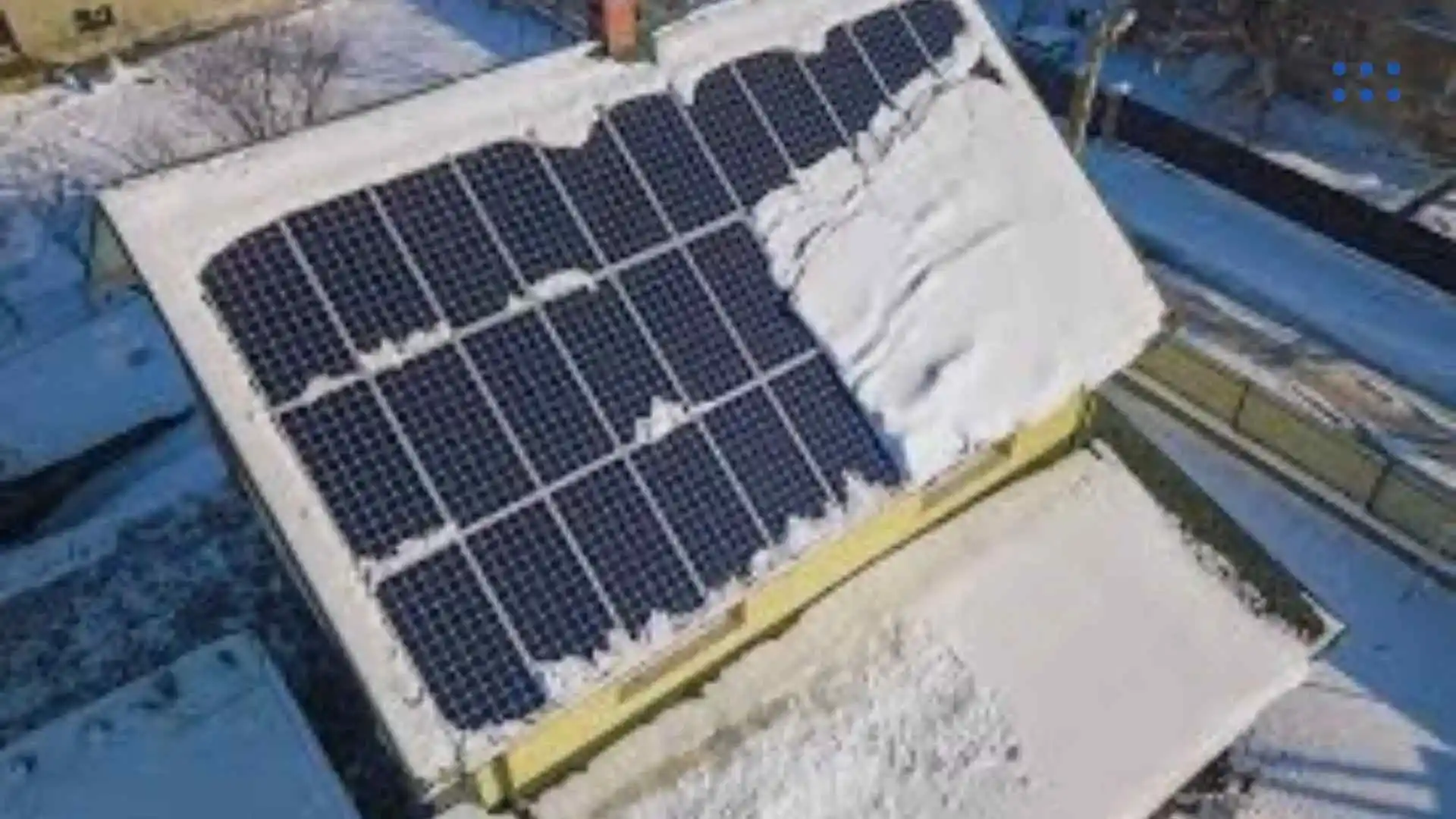
It’s also important to check for ice buildup around the inverter and wiring. Make sure they are clear to prevent freezing or damage. Regular inspections and cleaning during the winter months will help your system continue working efficiently and protect it from harsh weather.
Best Practices for Maximizing the Lifespan of Your Solar Panels
To get the most out of your solar panels, it’s important to take steps that protect and maintain them over time. Regular cleaning is one of the easiest ways to ensure maximum efficiency. Keeping your panels free of dirt, debris, and obstructions ensures they can absorb sunlight effectively.
Also, ensure that your system is installed correctly and inspected periodically. Protecting the panels from extreme weather conditions and avoiding heavy impacts will help extend their life. By following these best practices, you can maximize the lifespan of your solar panels and continue to enjoy clean energy for years.
| Best Practices | Description |
|---|---|
| Regular Cleaning | Clean panels regularly to remove dust and debris for better sunlight absorption. |
| Proper Installation | Ensure panels are installed correctly to avoid damage and maximize performance. |
| Protect from Extreme Weather | Protect panels from hail, extreme heat, or heavy snow to prevent damage. |
| Periodic Inspections | Have a professional inspect the system every few years to ensure it’s working properly. |
Tips for Protecting Solar Panels from Harsh Weather Conditions
Harsh weather conditions can damage your solar panels if not properly protected. To shield your panels from hail, heavy snow, or extreme heat, consider using protective covers during storms or harsh winters. Make sure your panels are installed at an angle to allow snow to slide off easily, preventing buildup.
For extreme heat, ensure your panels are well-ventilated to avoid overheating. Regular inspections after severe weather events can help you catch any damage early. Taking these simple steps will help protect your solar panels and keep them functioning well for years.
| Tip | Description |
|---|---|
| Use Protective Covers | Protect panels with covers during storms or harsh winters. |
| Install at an Angle | Install panels at an angle to help snow and debris slide off easily. |
| Ensure Proper Ventilation | Allow good airflow to prevent overheating during extreme heat. |
| Regular Inspections | Inspect panels after severe weather to detect any damage early. |
Solar Panel Maintenance Costs – How Much Should You Expect to Spend?
The cost of maintaining solar panels can vary depending on several factors, including the size of your system and whether you choose DIY or professional services. For basic cleaning, you can expect to spend little to no money if you do it yourself. However, professional cleaning services can cost anywhere from $100 to $300, depending on the size of the system.
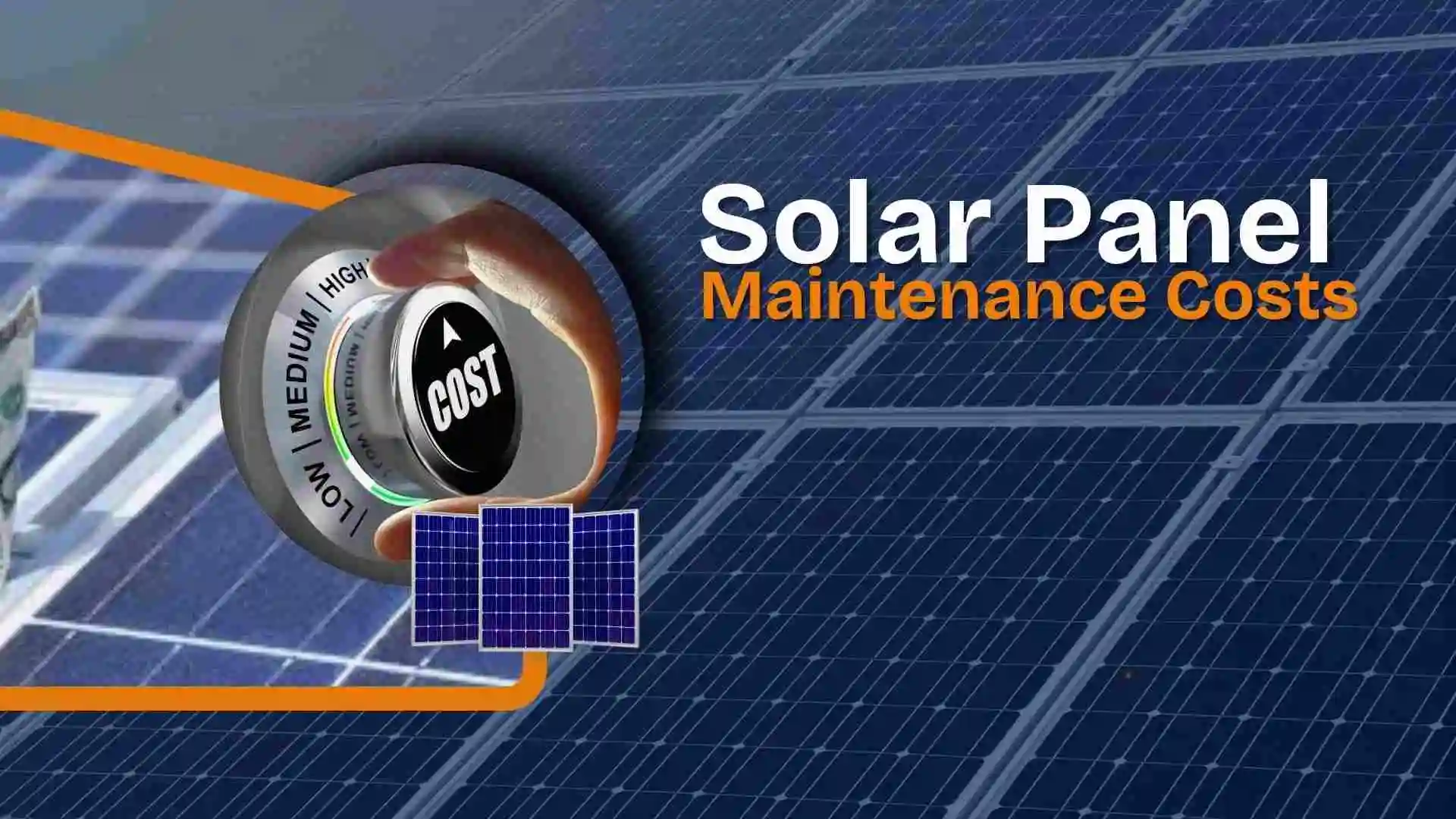
Additional maintenance, such as checking the inverter or wiring, may require a professional technician and can range from $150 to $500 for an inspection or minor repairs. Regular maintenance is an investment in your system’s longevity, helping to prevent costly repairs down the line and keeping your panels running efficiently.
Factors Affecting Solar Panel Maintenance Costs
Several factors can influence the cost of maintaining your solar panels. The size of your system is one of the biggest factors; larger systems require more time and resources to clean and maintain. The location also plays a role, as areas with more dust or debris may require more frequent cleaning.
Another factor is whether you choose DIY cleaning or hire a professional. While DIY is cheaper, professional services can ensure thorough cleaning and inspections. Additionally, the age of the panels can affect maintenance costs, as older systems may need more repairs or component replacements.
Professional vs DIY Solar Panel Maintenance: What’s Best for You?
DIY maintenance is cheaper and good for simple cleaning jobs. It works best if your panels are easy to reach and in good shape. But you must be careful not to damage anything.
Professional maintenance costs more but gives a full checkup. It’s safer and better for big or older systems. If you’re unsure, a professional is the safer choice.
| Aspect | DIY Maintenance | Professional Maintenance |
|---|---|---|
| Cost | Low | Higher |
| Safety | Needs caution | Safe, done by experts |
| Best For | Small, easy-to-reach systems | Large or old systems |
| Skills Needed | Basic cleaning skills | No skills needed |
| Inspection Quality | May miss hidden problems | Full and detailed check |
When Should You Choose a Professional for Solar Panel Maintenance?
You should consider hiring a professional if your solar panels are hard to reach or if they haven’t been inspected in a while. Professionals are better equipped to handle larger systems or complex issues, like inverter problems or damaged wiring. If your panels are older, it’s also a good idea to hire an expert to ensure everything is still working correctly.
If you’re unsure about the condition of your system or if you’re not comfortable doing maintenance yourself, a professional can give you peace of mind and ensure your panels remain efficient for years.
How to Safely Maintain Solar Panels on Your Own
Maintaining your solar panels safely starts with turning off the system before cleaning or inspecting any parts. Use a soft brush or cloth to remove dirt and debris from the panels to avoid scratching them. For cleaning, use a hose with low pressure and avoid harsh chemicals that can damage the panels.
When inspecting the panels, check for cracks or signs of damage. Ensure the wiring and connectors are secure and free from corrosion. Always be cautious when working on the system, and if you’re unsure about anything, it’s best to consult a professional.
Future of Solar Panel Maintenance – Innovations in Care and Technology
Solar panel care is becoming smarter and easier in 2025. New tools and tech are helping systems last longer and work better.
These updates are making solar panel care simpler, safer, and more effective for everyone. Let me know if you want this in table form!
How New Technology is Changing Solar Panel Maintenance
New tools are making solar care smarter and simpler. Drones now scan panels for damage and dirt quickly. Smart sensors track performance in real time and alert you to issues early. AI systems help predict when cleaning or repairs are needed.
These advances save time and reduce costs. They also help protect the panels and extend their lifespan. Smart tech is changing how we care for solar systems in 2025.
Conclusion
Proper maintenance is key to ensuring your solar panels continue to work efficiently and last longer. By cleaning, inspecting, and maintaining the system regularly, you can prevent performance drops and avoid costly repairs. Whether you choose to take care of it yourself or hire a professional, regular upkeep is essential to maximize your investment in solar energy.
As technology advances in 2025, smart tools like drones, AI, and sensors are making solar panel maintenance easier and more efficient. Following the best practices outlined in this guide will help you keep your solar panels running smoothly for years, saving energy and money while protecting the environment.
